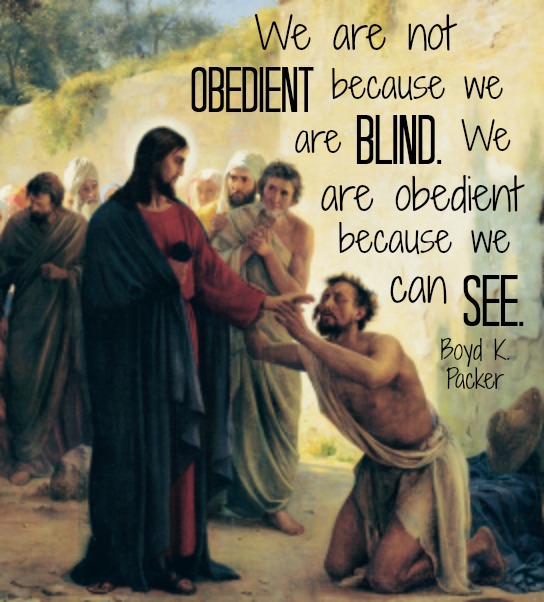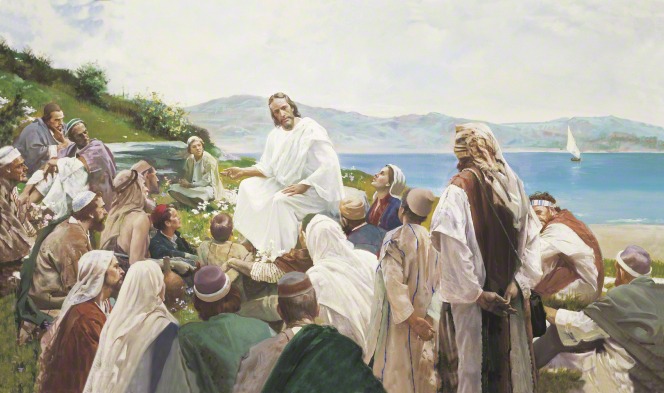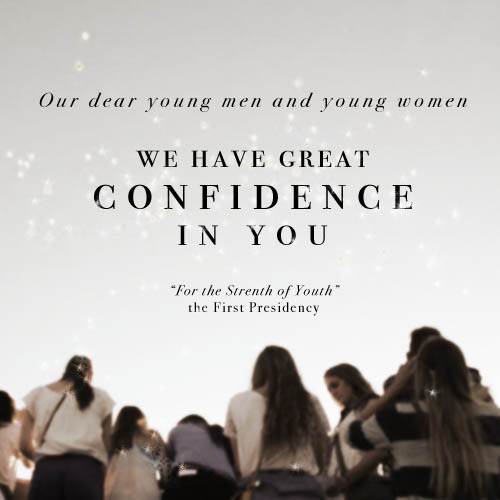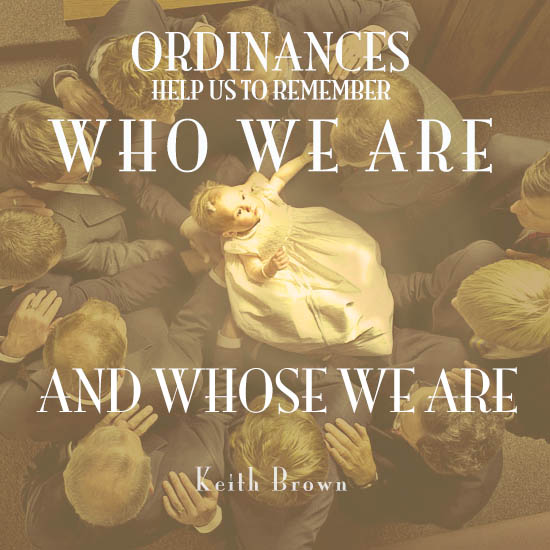The battle between good and evil makes a great movie plot. And J.R.R. Tolkien’s “Lord of the Rings” and “Hobbit” series of movies puts this plot line to great use—with epic quests and great battles. But sometimes the greatest cinematic battles are the internal struggles of a character as he tries to figure out whom to believe—the beast in front of him or the companion from whom he has been separated. It can be downright difficult for the character to know who is telling the truth—and who’s out to destroy him. It can be just as “tricksy” for him to decide which path to take. But the battle between good and evil is not just found in movies and books—it is a fundamental test of the world in which we all live. Elder L. Tom Perry said:
Today we find ourselves in [a] … war. This is not a war of armaments. It is a war of thoughts, words, and deeds. It is a war with sin, and more than ever we need to be reminded of the commandments. Secularism is becoming the norm, and many of its beliefs and practices are in direct conflict with those that were instituted by the Lord Himself for the benefit of His children.
Elder Quentin L. Cook said:
Today moral deterioration has escalated. One prominent writer recently said, “Everyone knows the culture is poisonous, and nobody expects that to change.” The constant portrayal of violence and immorality in music, entertainment, art, and other media in our day-to-day culture is unprecedented. This was dramatically described by a highly respected Baptist theologian when he stated, “The spiritual immune system of an entire civilization has been wounded.”
In this climate of spiritual deterioration, how is one to know where the battle lines are drawn—and which is the right side? The gospel of Jesus Christ is the safe place. His laws, teachings and scriptures provide the only sure path. Elder Jeffrey R. Holland said:
The encouraging thing, of course, is that our Father in Heaven knows all of these latter-day dangers, these troubles of the heart and soul, and has given counsel and protections regarding them…. Love. Healing. Help. Hope. The power of Christ to counter all troubles in all times—including the end of times. That is the safe harbor God wants for us in personal or public days of despair.
Safety for the soul, the safe harbor, is found in The Church of Jesus Christ of Latter-day Saints. It is “the only true and living church,” according to the Doctrine and Covenants—a book of scripture of revelations from modern-day prophets of God. (See Doctrine & Covenants 1:30.) The Church of Jesus Christ contains the unchanging, unyielding truth of the Savior’s teachings—that will not bend to the whims or winds of the world.
The Shift in Americans’ Religious Values
Many Americans are rejecting religious teachings in favor of man-made ideals and beliefs. A 2012 Pew Research Study highlighted the “rise of the nones.” One-fifth of the American public—and a third of adults under the age of 30— don’t affiliate themselves with any religion. The study found:
This large and growing group of Americans is less religious than the public at large on many conventional measures, including frequency of attendance at religious services and the degree of importance they attach to religion in their lives. …
With few exceptions … the unaffiliated say they are not looking for a religion that would be right for them. Overwhelmingly, they think that religious organizations are too concerned with money and power, too focused on rules and too involved in politics.
Another article discussed the decline of evangelicalism in America today:
Just 10 years ago, evangelical Christianity appeared to be America’s dominant religious movement. Evangelicals, more theologically diverse and open to the secular world than their fundamentalist brethren, with whom they’re often confused, were on the march toward political power and cultural prominence. They had the largest churches, the most money, influential government lobbyists, and in the person of President George W. Bush, leadership of the free world itself. Indeed, even today most people continue to regard the United States as the great spiritual exception among developed nations: a country where advances in science and technology coexist with stubborn, and stubbornly conservative, religiosity. But the reality, largely unnoticed outside church circles, is that evangelicalism is not only in gradual decline but today stands poised at the edge of a demographic and cultural cliff. The most recent Pew Research Center survey of the nation’s religious attitudes, taken in 2012, found that just 19 percent of Americans identified themselves as white evangelical Protestants—five years earlier, 21 percent of Americans did so. Slightly more (19.6 percent) self-identified as unaffiliated with any religion at all, the first time that group has surpassed evangelicals.
Some of the complaints about religions come from the increased resistance to live by their teachings—the rise of so-called “moral relativism.” Elder Dallin H. Oaks explained:
The philosophy of moral relativism, which holds that each person is free to choose for himself what is right and wrong, is becoming the unofficial creed for many in America and other Western nations. At the extreme level, evil acts that used to be localized and covered up like a boil are now legalized and paraded like a banner. Persuaded by this philosophy, many of the rising generation—youth and young adults—are caught up in self-serving pleasures, pagan painting and piercing of body parts, foul language, revealing attire, pornography, dishonesty, and degrading sexual indulgence.
On the foundation belief in right and wrong, there is an alarming contrast between the older and the younger generations. According to survey data of two decades ago, “79 percent of American adults [believed] that ‘there are clear guidelines about what’s good and evil that apply to everyone regardless of the situation.’” In contrast, a more recent poll of college seniors suggests that “three-quarters of [them] believe that the difference between right and wrong is relative.”
The scary thing about this outlook is that Americans get our moral foundation from religious teachings. If we try to take religious beliefs out of politics, government and everyday life, we leave ourselves without a moral compass to guide us. Honesty, integrity and respect for others are found in religious teachings. We leave ourselves open to all manner of false preaching and ideals when we discount the value of religion in our public lives. As Americans become less religious, they also become less able to discern the difference between right and wrong, moral and immoral. They lack a moral compass to guide them. The result is a rise in selfishness, the “me” generation that is more concerned with now than what they are leaving for their children.
Religions for the Wrong Reasons
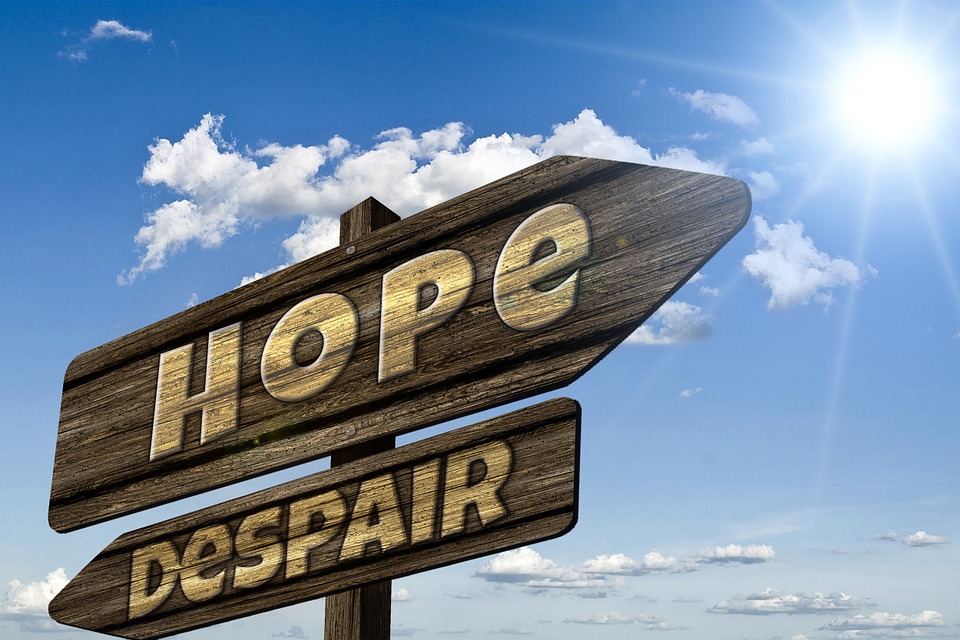 Some have blamed religions themselves for their disillusionment—accusing religious leaders and organizations of wanting power and money. Unfortunately, there are cases when this occurs. But it is patently unfair to discount the good that comes from religion because of some who practice and preach religions for the wrong reasons. I firmly believe that the vast majority of religious leaders and organizations—no matter their religious affiliation—have honorable and upright motives.
Some have blamed religions themselves for their disillusionment—accusing religious leaders and organizations of wanting power and money. Unfortunately, there are cases when this occurs. But it is patently unfair to discount the good that comes from religion because of some who practice and preach religions for the wrong reasons. I firmly believe that the vast majority of religious leaders and organizations—no matter their religious affiliation—have honorable and upright motives.
The practice of teaching and establishing religions for the wrong reasons is called priestcraft. Peter said: “Feed the flock of God which is among you, … willingly, not for filthy lucre” (1 Peter 5:2). The Book of Mormon—another testament of Jesus Christ, a companion scripture to the Bible and a record of God’s dealings with the inhabitants of the ancient Americas—teaches:
… Priestcrafts are that men preach and set themselves up for a light unto the world, that they may get gain and praise of the world; but they seek not the welfare of Zion (2 Nephi 26:29).
Elder Paul V. Johnson said:
… Setting oneself as a light seems to be central to the problem of priestcraft. The reasons for setting oneself up as a light include getting gain and praise. … It is a matter of the heart. What is the motivation?
Priestcraft, then, is a sin of the heart. Do the religious leaders seek for money or power or to preach the word of God? Elder Johnson explained the resulting ills from priestcraft:
I think the great danger is that we don’t have power in our teaching. Or our teaching may be powerful, but it may not be the power of God (see Doctrine & Covenants 50:13–23). Maybe it is emotionally powerful, or scholastically powerful, but it doesn’t help with the lasting changes that need to happen in a student’s life….
We can also teach a wrong message if we are involved in priestcraft. The students might worship the teachers but not get the true connections with the gospel doctrine. It is like a father who forcefully teaches his children about honesty but cheats on his taxes. The words are there, but the power isn’t there. A student may not realize exactly what is going on, but something doesn’t click. It doesn’t click because the Spirit isn’t there like it could be there.
Religious leaders who teach for the wrong reasons—for power, glory or money—can confuse honest seekers of truth, those who truly seek to know God. But the Savior taught us how to tell the difference: “Ye shall know them by their fruits” (Matthew 7:16). The religious organizations and leaders who have pure hearts and motives do much good in the world—for their focus is to follow the example of the Savior.
The Good News of the Gospel
The good news of the gospel of Jesus Christ is that all honest seekers of truth can know Him. Jesus Christ said: “And this is life eternal, that they might know thee the only true God, and Jesus Christ, whom thou hast sent” (John 17:3). How can one come to know God and His Son, Jesus Christ? Through the teachings of the true and living gospel of Jesus Christ. Although many Christian denominations teach and preach of Jesus Christ and His gospel, only The Church of Jesus Christ contains the fullness of the gospel—including the keys of the priesthood, which is the power that God gives to man to act in all things for the salvation of His children.
But how can Latter-day Saints say theirs is the only true church? President Boyd K. Packer explained:
Now this is not to say that the churches, all of them, are without some truth. They have some truth—some of them very much of it. They have a form of godliness. Often the clergy and adherents are not without dedication, and many of them practice remarkably well the virtues of Christianity. They are, nonetheless, incomplete.
The good news of the gospel of Jesus Christ is that we can all know for a surety that He lives. We find the fullness of His doctrines and teachings in The Church of Jesus Christ—His Church in the modern days. Elder Oaks explained:
… We refer to this, His Church—our Church—as the “only true Church” (Doctrine & Covenants 1:30). Sometimes we do this in a way that gives great offense to people who belong to other churches or who subscribe to other philosophies. But God has not taught us anything that should cause us to feel superior to other people. Certainly all churches and philosophies have elements of truth in them, some more than others. Certainly God loves all of His children. And certainly His gospel plan is for all of His children, all according to His own timetable.
So what does it mean that The Church of Jesus Christ of Latter-day Saints is the only true Church? Three features—(1) fulness of doctrine, (2) power of the priesthood, and (3) testimony of Jesus Christ—explain why God has declared and why we as His servants maintain that this is the only true and living Church upon the face of the whole earth.
The priesthood is the power that God gives to man to act in all things for the salvation of His children. It was by this power and authority that Jesus Christ established His Church anciently. It is by this same power and authority that the Prophet Joseph Smith—the founding president of The Church of Jesus Christ in the modern days—established His Church. Joseph Smith was given the priesthood keys—which are the authority from God to govern the affairs of His Church—from heavenly messengers. Joseph Smith gave those keys to his Apostles, and the priesthood chain has remained unbroken to this day through the successive prophets and Apostles of Jesus Christ. The prophet of God, as in ancient times, receives revelation for the current times. This is, indeed, good news—God speaks to us today, through His mouthpiece, the prophet.
The Gospel of Jesus Christ is Safety for the Soul
The prophets and Apostles of God receive revelation for us today. Those who heed their warnings and counsel will find the safe harbor to navigate the chaos of this world. Current prophets have been important from the beginning. President John Taylor, a past president of The Church of Jesus Christ, said:
Adam’s revelation did not instruct Noah to build his ark; nor did Noah’s revelation tell Lot to forsake Sodom; nor did either of these speak of the departure of the children of Israel from Egypt. These all had revelations for themselves. (Millennial Star, 1 Nov. 1847, p. 323.)
And so it is for us today. God’s laws and commandments are unchanging—and modern prophets and Apostles not only remind us of this but also warn us of dangers ahead, and how to prepare for them. Elder Perry said:
God reveals to His prophets that there are moral absolutes. Sin will always be sin. Disobedience to the Lord’s commandments will always deprive us of His blessings. The world changes constantly and dramatically, but God, His commandments, and promised blessings do not change. They are immutable and unchanging. Men and women receive their agency as a gift from God, but their liberty and, in turn, their eternal happiness come from obedience to His laws. …
Surely there could not be any doctrine more strongly expressed in the scriptures than the Lord’s unchanging commandments and their connection to our happiness and well-being as individuals, as families, and as a society. There are moral absolutes. Disobedience to the Lord’s commandments will always deprive us of His blessings. These things do not change. In a world where the moral compass of society is faltering, the restored gospel of Jesus Christ never wavers.
In today’s world of shifting values, the teachings of Jesus Christ are constant, unyielding and unchanging. In it we can find peace and happiness. If we hold fast to the truths that we know—and heed the counsel of the prophets and Apostles of God—we will find safety from the storms of life and society’s shifting moral compass.

